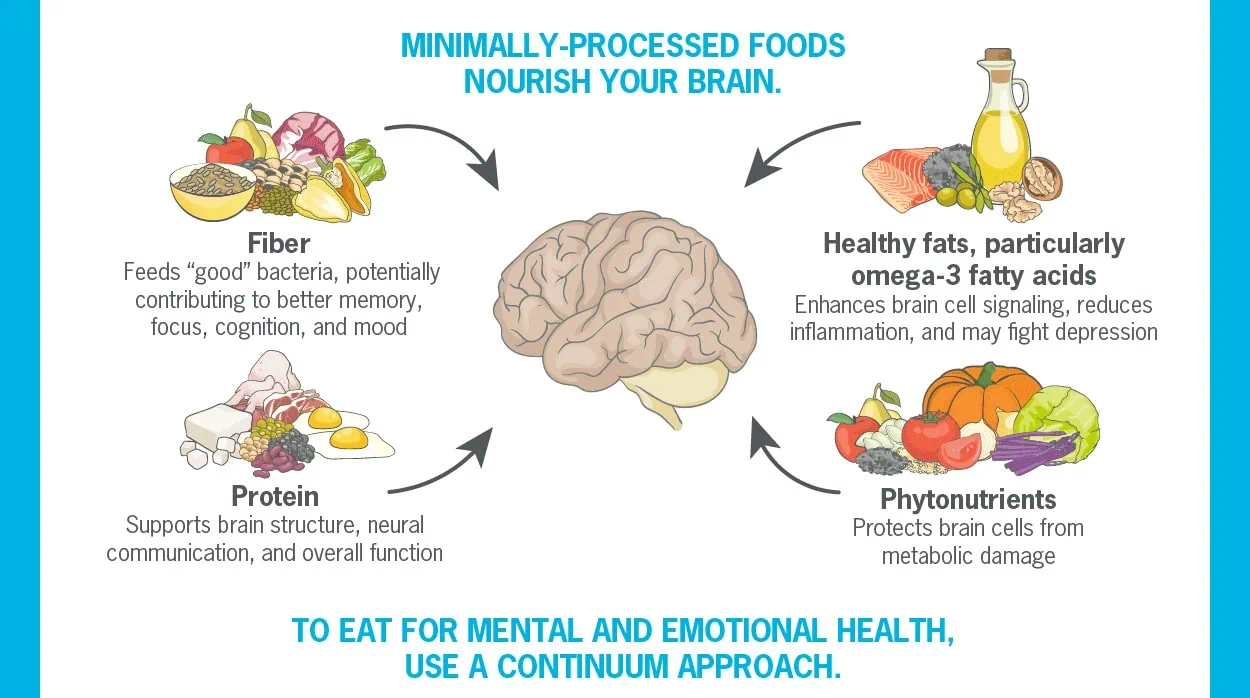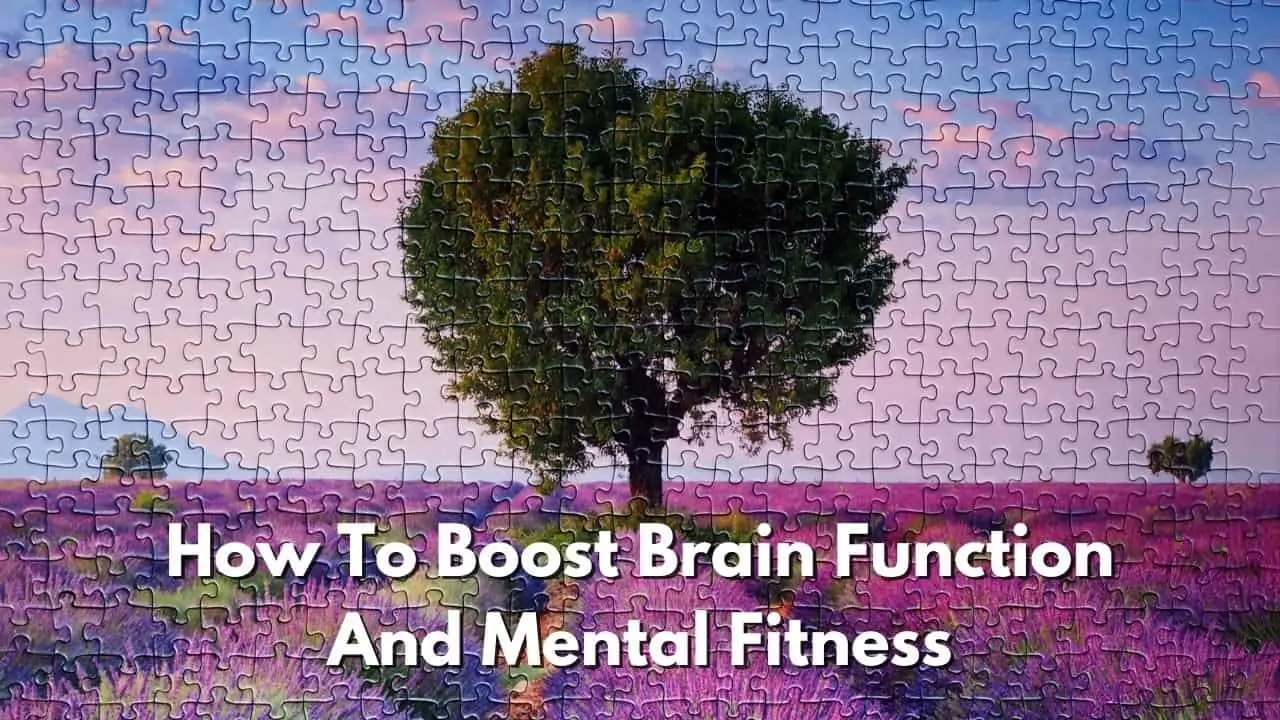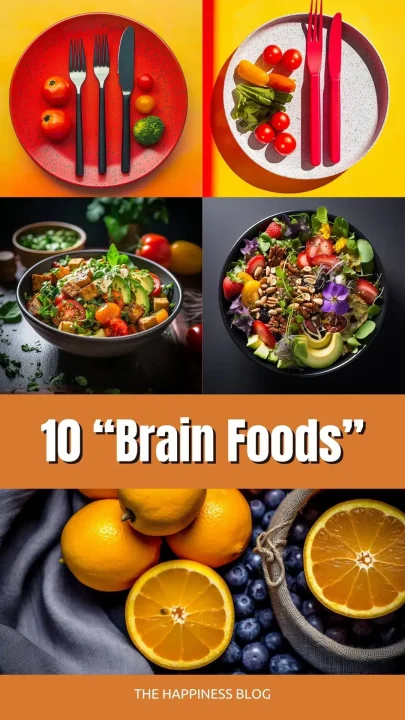Today's Monday • 14 mins read
— By Dr. Sandip Roy.
Social media is aging our brains faster than we realize. Experts call it “brain rot”—a term Oxford named Word of the Year (2024), describing it as mental decline caused by overconsumption of low-quality online content.
The numbers are alarming. Americans now spend over 30 hours a week on social media! This flood of trivial content is making us more distracted, more nervous and depressed, and less motivated, says Harvard psychiatrist Carl D. Marci.
Doom-scrolling drains your energy, focus, and willpower, leaving you too mentally fatigued to make good choices—whether it’s exercising, eating well, or staying mentally sharp.
The good news? You can fight back. Science shows that a few simple habits can rewire your brain for clarity, focus, and resilience.
Here’s how to train your mind to stay sharp and engaged—starting today.
7 Healthy Habits For Brain And Mental Fitness
Brains are the fittest when you challenge them with novel tasks, prioritize sleep, eat smarter, stay active, and meditate — the basics.
1. Eat These Foods For Brain Health
The best thing we can do for our brain is to eat well. Studies suggest better cardiovascular health is linked to better cognitive health (Kulshreshtha & Goetz, 2019).
So, the best foods for your brain seem to be the same foods that protect your heart. The likely reason is that healthy hearts and blood vessels supply blood to the brain well.
★ 10 Brain Foods
The best foods for brain health:
- Seafood and fatty fish — cod, salmon, sardines, tuna, halibut, and mackerel contain omega-3 fatty acids which help prevent brain strokes.
- Green leafy vegetables (GLV) — antioxidants and lutein, folate, β-carotene, and phylloquinone, which slow down cognitive decline.
- Broccoli, Brussels sprouts, Cabbage, Cauliflower, and Kale — contain glucosinolates which minimize oxidative stress and the risk of neurodegenerative disorders.
- Dark chocolate and coffee — contain cacao, which has flavonoids.
- Oranges and tangerines — contain vitamin C.
- Cinnamon, flaxseeds, ginger, and turmeric — contain antioxidants.
- Eggs — contain choline, vitamins B, D, and E.
- Vitamin E supplements — according to a study published in Neurobiology of Aging, those with greater levels of vitamin E were up to 15% less likely to suffer from cognitive impairment.
- Vitamin D — one study found people with low vitamin D levels showed a worse mental decline over 4.4 years compared to their counterparts with adequate levels of vitamin D.)
- Nuts — nuts contain monounsaturated fats (MUFA), which lower total cholesterol and low-density lipoprotein (or “bad”) cholesterol levels in the blood.

★ Mediterranean Diet For Brain Health
- The Mediterranean diet can prevent cognitive decline and other aspects of brain aging, like lowering the risk of developing memory issues (Zamroziewicz & Barbey, 2016).
- The diet has been associated with reduced risks of all-cause and cardiovascular mortality, and non-fatal cardiovascular events (Furbatto & Lelli, 2024).
- A 2025 paper in JAMA reported those who stick to a Mediterranean diet can decrease their risk of obesity-linked cancer by 6%.
The Mediterranean diet is a style of eating based on the traditional cuisines of countries bordering the Mediterranean Sea, like Greece and Italy. Its core food items are:
- Whole Grains
- Foods: Bulgur, farro, quinoa, whole wheat bread, barley, and brown rice.
- Role: Provide fiber, vitamins, and sustained energy; a staple in dishes like tabbouleh or risotto.
- Protein-Rich Legumes
- Foods: Lentils, chickpeas, fava beans, white beans, and black-eyed peas.
- Role: Plant-based protein and fiber source, featured in soups, stews (e.g., Greek fakes), and hummus.
- Lean and Fatty Fish/Seafood
- Foods: Salmon, mackerel, sardines, tuna, herring, cod, shrimp, and octopus.
- Role: Rich in omega-3 fatty acids (fatty fish) and lean protein; a primary protein over meat, often grilled or baked.
- Poultry and Eggs (in Moderation)
- Foods: Chicken, turkey, and eggs (current recommendation is up to 7 eggs per week).
- Role: Secondary protein sources, used sparingly compared to fish (e.g., in souvlaki or frittatas).
- Dairy (Moderate, Often Full-Fat)
- Foods: Feta cheese, Greek yogurt, halloumi, pecorino, and small amounts of milk.
- Role: Provides calcium and probiotics; traditionally full-fat but portion-controlled, not always “low-fat.”
- Abundant Plant-Based Foods
- Foods: Vegetables (tomatoes, eggplant, spinach, zucchini), fruits (figs, oranges, grapes, pomegranates), nuts (almonds, walnuts, pistachios), seeds (sesame, pine nuts), and herbs/spices (basil, oregano, rosemary, garlic).
- Role: The diet’s backbone—high in antioxidants, vitamins, and flavor; think ratatouille or caponata.
- Olive Oil as the Primary Fat
- Foods: Extra virgin olive oil (EVOO) for cooking, dressings, and dipping.
- Role: Rich in monounsaturated fats and polyphenols; replaces butter or processed oils.
- Limited Red Meat and Sweets
- Foods: Lamb or beef (rarely), honey-based desserts (e.g., baklava), or fruit for sweetness.
- Role: Red meat is a monthly treat, not daily; sweets are occasional, favoring natural sugars.
Note: Red wines like Chianti or Tempranillo also get included optionally, in moderation (1–2 glasses/day with meals for adults) in the Mediterranean diet.
However, recent studies prove that even 1 drink (daily or occasionally, like on weekends) can increase the risk of cancer, especially for women.
★ Nuts For Brain Fitness
Nuts are good for your brain because they have healthy fats, antioxidants, and vitamin E. The last, vitamin E, protects cells from damage caused by free radicals, which can slow down cognitive decline.
Peanuts and tree nuts (like almonds, walnuts, cashews, macadamia nuts, and hazelnuts) can lower the risk of cardiovascular disease and cognitive decline in older adults.
Studies prove the brain benefits of nuts:
- Consuming peanuts and tree nuts twice a week and walnuts once a week was linked to a 13% to 19% lower risk of total cardiovascular disease and a 15% to 23% lower risk of coronary heart disease (Guasch-Ferré & Liu, 2017).
- People aged 55 and over who ate more than 10g of nuts per day had a higher cognition score or were 40% less likely to have a poor cognitive function (Li & Shi, 2019).
- Women aged 70 and up who had 5 servings of nuts/week over the long term had better overall cognition (O’Brien & Okereke, 2014).
- Almonds, hazelnuts, and walnuts can stop the start and progress of Alzheimer’s disease, including amyloidogenesis, tau phosphorylation, and oxidative stress; hazelnuts may even reverse brain atrophy (Gorji & Moeini, 2017).
- Eating 1–2 oz of walnuts per day can improve cognitive performance and also lower the risk of other conditions such as cardiovascular disease, depression, and type 2 diabetes, all of which are risk factors for dementia development (Abha Chauhan & Ved Chauhan, 2020).
2. Keep A Log Book of Positive Memories
When we’re young, our supple brains can quickly recall any “first” memory, But as we get older, it gets difficult to retrieve a fond memory from the brain’s crowded “hard disk.”
The solution: Start building a book of pleasant memories for those coming days.
- Recalling positive memories (“self-generated positive emotions via memory recall”) can reduce stress and enhance mood, especially when in a challenging situation (Speer & Delgado, 2017).
- Positive memories (“memories of notable and personally meaningful positive experiences”) in posttraumatic stress disorder (PTSD) patients can reduce its severity, increase positive affect, and reduce negative affect (Contractor & Brown, 2018).
Your memory-book could be a simple document on your computer/cloud-drive, or something more elaborate as a physical, handwritten, hand-drawn notebook. Pictures with text in a specific folder is another way.
Update it routinely and record any event that’s a thrill. Especially note down new, interesting, and pleasant things in your day. Keep your memory book close by.

3. Exercise 5 Days A Week
Treat exercising as eating brain food.
All exercise is good for your brain. Even a weekend walk in the park is good for your brain.
But the best benefit comes when you make exercise a daily habit. Researchers agree on exercising 30 minutes a day for 5 days a week for optimal brain and body performance.
Positive psychologist Tal Ben-Shahar says:
“In essence, not exercising is like taking a depressant.”
Exercise reduces inflammation, increases blood flow, and stimulates the growth of new nerve cells and new blood vessels in the brain. It also improves mood and sleep, and reduces stress and anxiety.
Strength training can improve blood flow to the brain, and boost your mood. Sports that need hand-eye coordination, like tennis, ping-pong, and ball-bouncing, improve balance. Aerobics can improve memory and recall.
- Resistance exercises and/or resistance training can notably delay age-related deterioration of cognitive functions, mainly mediated by the release of BDNF or brain-derived neurotrophic factor (Herold & Törpel, 2019).
- Exercises that help maintain your eye-hand coordination (EHC) are good for the cerebellum.
- Regular aerobic exercise can increase the size of the hippocampus—the part of the brain that controls verbal memory and learning (Brinke & Bolandzadeh, 2014).
- Researchers from universities in Australia and Germany found that 150 minutes of sports activity per week can reduce the risk of developing depression and anxiety (Siefken, Junge, & Laemmle, 2019).
- An Australian study found that 150 minutes of vigorous physical activity per week is associated with improved survival and healthy, positive aging in older men.
- Then there was the famous PURE Study, 2017, which included 130,000 people from 17 countries, with no participants having heart disease at the start of the study. It found that 150 minutes of moderate-intensity physical activity per week was associated with a 22% lower risk for all-cause mortality plus major cardiovascular disease (CVD) and a 20% lower risk of major CVD.
- Another study found exercise can work just as well as any medicine to prevent mild-to-moderate depression (HUNT Cohort Study, 2018).
However, there is a catch: Don’t exercise to outdo others. A study on German athletes found the mix of vigorous-intensity physical activity and competitive stress led to higher levels of depression, anxiety, irritability, and sleep disturbances.
Read the science behind exercise and happiness.
3. Practice Mindfulness Meditation
Meditation is excellent for brain health, but it can be a challenge for many of us.
Two major problems with meditation are feeling sleepy and mind-wandering. They indicate: one, your brain is tired, and two, it’s the default nature of your mind to wander.
Meditation helps improve your task focus, gain clarity in thoughts, and build mental resilience. Its benefits last long term, throughout the day and the week.
A simple way to meditate, which has plenty of scientific support, is mindfulness meditation (and it’s easy to start and just takes 3 minutes).
Mindfulness meditation is the process of focusing on the present moment and accepting the rising thoughts and emotions without judgment.
The mind is a gym, and meditation is a basic workout. — Daniel Goleman
4. Play Brain Games
Brain games are neuropsychological tasks transformed into games or puzzles. The aim is to challenge our core cognitive skills, like memory, logic, attention, processing speed, flexibility, and problem-solving.
One of the simplest brain games is to play this fun memory game:
Move your eyes across the room, then close your eyes, and try to recall the colors of each object in sequence. You could play this on your own or with a friend or partner.
Chess, crosswords, picture puzzles, and Sudoku are some highly effective brain fitness games. You could read a random article on Wikipedia.
There also exists a universe of brain-training games on your smartphone. Some popular ones are Peak, Lumosity, Elevate, Brainwell, and NeuroNation. Most of these are backed by neuroscience researchers.
- A study published in PLOS suggests brain-training games can improve young people’s “executive functioning, working memory, and processing speed.”
- A 10-year study revealed cognitive training can help the elderly increase their speed of processing and lower their risk of dementia.
We suggest playing a game that challenges your brain, if only for 10 to 15 minutes, out of an entire day’s 1440 minutes.
6. Make Sleep A Priority
A good night’s sleep is a non-negotiable for our mental health and overall well-being.
Poor sleep makes us sluggish, prone to making wrong decisions, and losing our mental sharpness. Sleeping well is both about quality and quantity.
- Quantity of sleep: If you want your brain to perform with maximum vigor and focus during the day, you must get a full 8-hour sleep each night. Sleep experts also urge us to take afternoon naps to recharge our brain’s batteries.
- Quality of sleep: Poor quality sleep, like interrupted sleep or dreamless sleep, can make you feel exhausted in the morning.
Sleeping well through the night allows you to stay sharp and respond fast during the day. It helps regulate your memory, mood, learning, appetite, and libido. Sleep performs the two most vital functions:
Poor sleep can also be due to medications, sleep apnea (a blocked airway causing periodic stoppage of breathing), or an overactive bladder interrupting sleep for trips to the bathroom.
While sleeping, the brain tries to make sense of the events of the day and put them into a meaningful context. Our brain cells rewire themselves during deep sleep, creating a meaningful map of the day’s information. So, when you get a good night’s sleep, it is easier to recall what happened during the day.
Sleep clears out the many toxins accumulated during waking hours. In fact, sleep deprivation has been linked to Alzheimer’s disease.
- According to this research, sleep helps in the removal of beta-amyloid deposits from the brain.
- Sleep also helps build immunity. Studies have shown that sleep-deprived people are more likely to get a cold virus.
Remember, sleep is perhaps the most vital part of your mental health. Cutting back on your sleep only increases your waking hours, which are neither your most productive nor your best creative hours.
- Read these Six Genuine Sleep Hacks From Science.
7. Do Digital Detox Periodically
Most of us spend the majority of our waking hours staring at screens—laptops, phones, tablets, and TVs. A digital detox is simply cutting back on screen time to reset your mind and reduce stress.
Here are three ways to unplug:
- Go completely off-grid for a few days. Take a break — live a few days off the grid. Go to a place with no internet or digital devices—a cabin, a nature retreat, or a quiet getaway.
- Set daily screen-free hours. Make yourself digitally unavailable for a few hours, like two hours before bed. Read a physical book, write in a journal, play a board game, or try a creative hobby instead.
- Keep your phone away during conversations. Research shows that just having your phone nearby (even if you’re not using it) can lower the quality of interactions and make you feel less present.
A regular digital detox can improve focus, sleep, and mental well-being—and help you reconnect with the real world.
Final Words
Explore the environment outside your regular residence. When you travel to new places, you challenge your brain with new tasks and often open yourself up to AWE, The Eleventh Emotion.
Let us close this with a fascinating story of an experiment:
- In 2015, a group of scientists, led by Professor Paul K. Piff, took ninety students into a grove of Tasmanian Eucalyptus trees.
- They made an odd request to the students. One group was to stare at the towering trees. Now, each of those trees was 200+ feet tall. And the students had to stare up at them, necks craned, for at least one minute.
- The other group was asked to watch a tall university building nearby.
- Then each student was let go, one by one. As a student walked across the grove, a rushed person appeared and “accidentally” dropped a bunch of pens.
- Professor Piff wanted to find out which group helped the person more in picking up the pens.
- Some from both groups helped. But most of the helpful students were from the group who had spent time watching the giant trees.
But why? The researchers found that watching the tall trees filled the participants with a sense of awe. It was this awe that made them more generous and helpful. You must find out more about the positivity-boosting power of awe.
√ Also Read: 7 Easy Home Exercises To Do Every Day, Starting Today
√ Please share it with someone if you found this helpful.
» You deserve happiness! Choosing therapy could be your best decision.
...
• Disclosure: Buying via our links earns us a small commission.
